Sunburn or Photosensitivity in Horses
Updated on 04/26/24
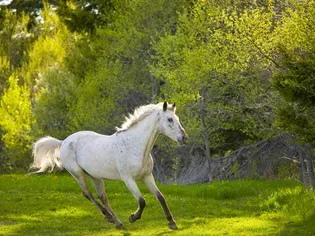
Sunburn and Photosensitivity in Horses: A Comprehensive Guide
As the sun's rays intensify with the changing seasons, it's crucial for horse owners to be aware of the potential risks of sunburn and photosensitivity in their equine companions. These conditions, while preventable, can cause severe discomfort, skin damage, and long-term health consequences for horses.
Understanding Sunburn in Horses
Sunburn, also known as erythema, occurs when a horse's skin is exposed to excessive amounts of ultraviolet (UV) radiation from the sun. Horses with light-colored skin, such as white or gray, are particularly susceptible to sunburn, as they lack the protective pigment melanin that absorbs UV rays.
Symptoms of Sunburn in Horses:
* Redness and inflammation of the skin
* Tenderness and sensitivity to touch
* Crusting or flaking of the skin
* Blistering and peeling
* Skin thickening
Treatment for Sunburn in Horses:
Treatment for sunburn aims to relieve discomfort, prevent infection, and promote healing.
* Provide shade and cool water to the horse.
* Apply cold compresses to affected areas.
* Use topical creams or ointments containing aloe vera or oatmeal to soothe the skin.
* Keep the horse away from sunlight until the sunburn has healed.
* In severe cases, veterinary care may be necessary to treat infection and prescribe pain medication.
Understanding Photosensitivity in Horses
Photosensitivity, also known as sun poisoning, is a condition in which a horse's skin becomes abnormally sensitive to UV radiation. This sensitivity can be caused by various factors, including:
* Certain medications, such as antibiotics and anti-inflammatories
* Plants containing photosensitizing compounds, such as St. John's wort and white clover
* Liver disease
* Autoimmune disorders
Symptoms of Photosensitivity in Horses:
* Skin irritation and itching
* Redness and inflammation
* Blistering and swelling
* Hair loss
* Weight loss and reduced appetite
* Sensitivity to light
Treatment for Photosensitivity in Horses:
Treatment for photosensitivity focuses on removing the underlying cause and protecting the horse from sunlight.
* Identify and discontinue medications or plants that may be causing the photosensitivity.
* Provide shade and protective clothing for the horse.
* Use sunscreens specially formulated for horses to block UV rays.
* Treat any skin lesions or infections as necessary.
* In severe cases, veterinary care is essential to manage the condition and prevent complications.
Prevention of Sunburn and Photosensitivity in Horses:
Prevention is key to safeguarding horses from sunburn and photosensitivity. Here are some preventive measures to consider:
* Limit Sun Exposure: Keep horses out of the sun during peak hours (10 am to 4 pm) and provide shade in pastures and paddocks.
* Use Sunscreen: Apply sunscreen to exposed areas of the horse's skin, particularly in fair-skinned horses.
* Check Medications: Be aware of potential photosensitizing medications and consult with a veterinarian before administering them.
* Control Plants: Remove or cover plants that are known to cause photosensitivity in horses.
* Monitor Liver Function: Horses with liver disease are more prone to photosensitivity. Regular veterinary check-ups can help detect and manage liver issues.
Conclusion
Sunburn and photosensitivity are preventable conditions that can significantly impact the health and well-being of horses. By recognizing the symptoms and taking appropriate preventive measures, horse owners can protect their animals from these harmful effects and ensure their comfort and vitality during the sunny months.
Explore More Pets
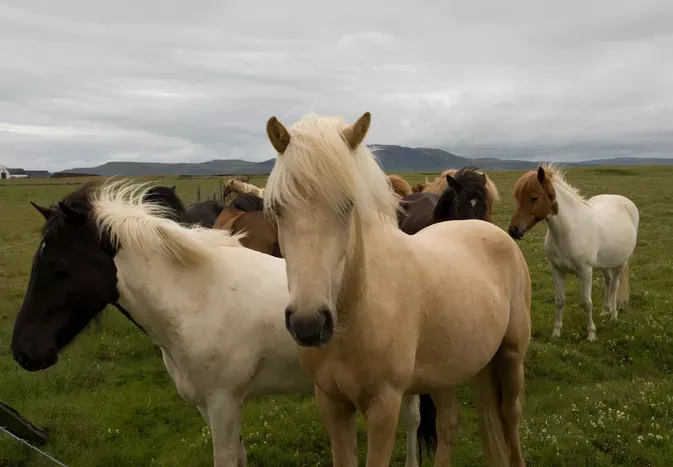
Pony Breeds
The Difference Between Horses and Ponies
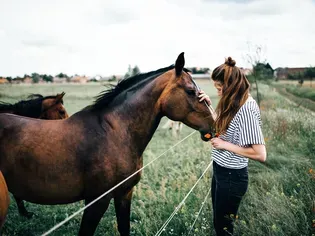
Horse Diseases & Conditions
What Do I Do If My Horse Colics?
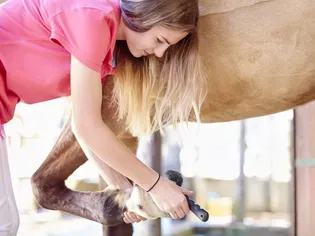
Pony Breeds
Horse and Pony Care by the Day, Week, Month and Year
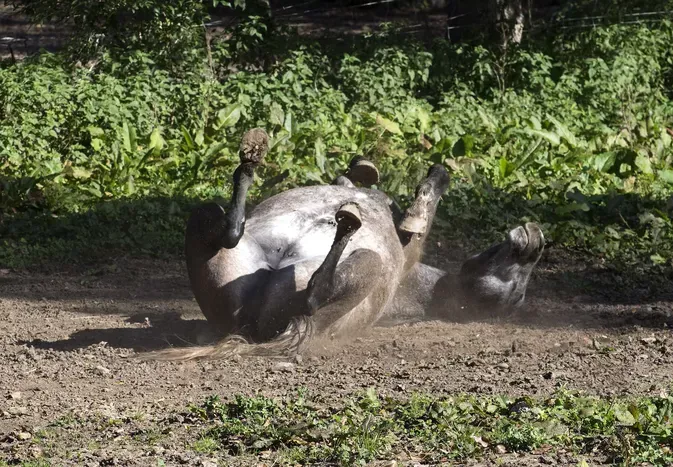
Horse Grooming
Mange in Horses
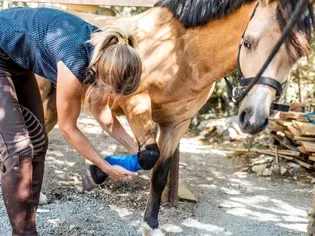
Horse Diseases & Conditions
Grease Heel in Horses
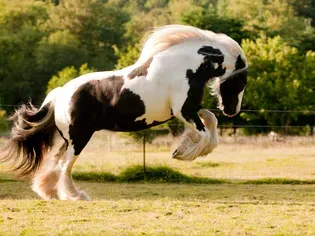
Light Horse Breeds
Gypsy Vanner Horse Breed Profile
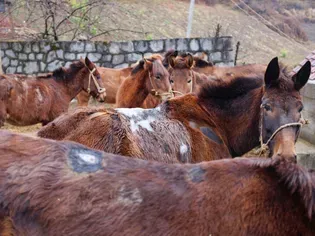
Horse Diseases & Conditions
Girth Galls and Saddle Sores
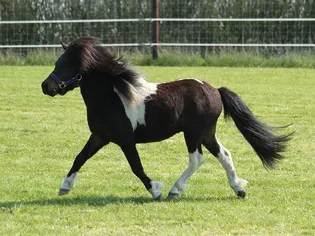
Pony Breeds
Shetland Pony Breed Profile